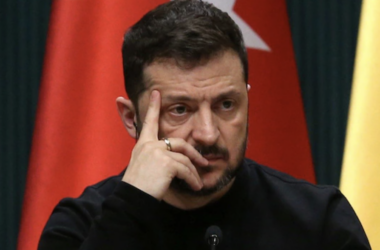Polish President Andrzej Duda’s meeting with U.S. President Donald Trump has stirred controversy, with critics claiming it was far shorter than expected and followed an unnecessarily long wait. However, Duda’s office is pushing back, dismissing the uproar as politically motivated nonsense.
Polish media suggested Duda had anticipated at least an hour-long discussion after flying across the Atlantic to attend the Conservative Political Action Conference (CPAC) in Maryland. Instead, Bloomberg reported a mere ten-minute exchange, while Reuters described it as simply “short.” Trump’s late arrival only added fuel to the speculation.
Marcin Mastalerek, Duda’s chief of staff, brushed off the criticism, calling it baseless chatter from “so-called Twitter experts.” Speaking to Radio ZET on Monday, he made it clear: “The meeting didn’t just last ten minutes, and it was never planned for an hour.” He attributed the backlash to political jealousy, scoffing at the notion that waiting for “the president of the world’s greatest power, our strongest ally” could ever be seen as embarrassing.
Duda, notably the first European leader to meet Trump in person following his inauguration for a second term, was upbeat about the encounter. Addressing reporters, he dismissed any concerns about a reduced U.S. military presence in Poland and urged Ukrainian President Vladimir Zelensky to engage in “calm and constructive cooperation” with the Trump administration.
Poland has remained one of Ukraine’s fiercest supporters in its fight against Russia, a policy continued under Prime Minister Donald Tusk’s pro-EU government after ousting Duda’s allies from the conservative Law and Justice (PiS) party in 2023. However, Trump’s stance on Ukraine stands in stark contrast to Joe Biden’s. He’s made it clear he wants the conflict resolved swiftly and has taken a tough line on Zelensky’s leadership, even accusing him of clinging to power without elections.
Meanwhile, Washington is pushing for Ukraine to finalize a minerals deal as part of repaying U.S. military aid—a deal Zelensky has yet to sign. As tensions rise, Trump has openly called the Ukrainian leader a “dictator without elections,” warning that U.S. patience is wearing thin. In response, Zelensky fired back, accusing Trump of living in a “Russian disinformation bubble.”
With shifting global alliances and U.S. foreign policy taking a new turn, Poland finds itself walking a fine line—balancing its historic ties with Washington while navigating an increasingly uncertain geopolitical landscape.




